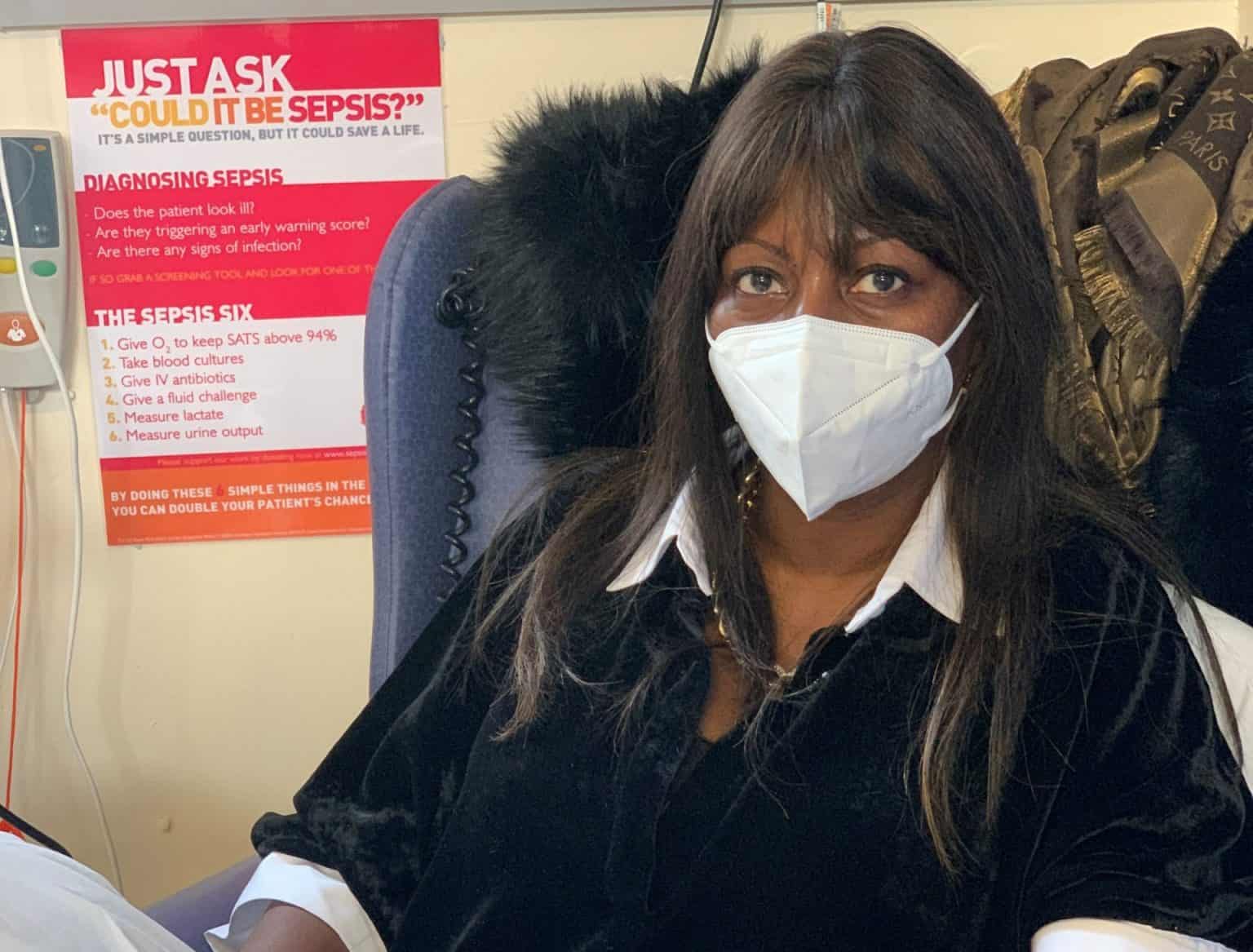
A sickle cell patient has become one of the first in England to receive new life-changing treatment at a Birmingham hospital.
Loury Mooruth, 61, was given Crizanlizumab on Wednesday (23 FEBRUARY) at City Hospital, which is run by Sandwell and West Birmingham (SWB) NHS Trust – one of the 10 dedicated centres to treat sickle cell disease across the country.
The drug, which is given as a monthly infusion, will substantially reduce episodes of extreme pain, which are called crises, in those with the disease.
Loury said: “I am really happy that this drug is out there for us. It is going to decrease my crises by 40 per cent. Any amount, whatever percentage is brilliant.
“If you’re in crisis, you’re in extreme pain, it’s very dangerous and can affect your main organs. I’ve had two brain bleeds as a result and didn’t know I’d had them until I had a scan and it showed.
“As a sufferer, we live everyday in pain, but this drug will help us.”
She added: “Sickle cell has been part of my entire life. People look at you and think you look fine, but they don’t understand the pain and the trauma along with the many trips to A&E.
“When I have a sickle cell crisis, it’s like someone has a knife and they are ripping it through my joints – particularly my hips and legs.
“Whenever I thought about having this new drug it brought tears to my eyes. I am so excited and over the moon because it is literally life-changing for me and my family. I really want to encourage other eligible people with this disease to come forward and get this drug.”
Sickle cell disease causes red blood cells to distort and become sticky, blocking vessels and restricting oxygen supply, which triggers excruciating pain. During a crisis, patients often need powerful opioid painkillers. Crizanlizumab, a monoclonal antibody, binds to a protein on blood cells, preventing them from clumping and causing pain. Dr Shivan Pancham, Haematology Consultant, explained: “Our patients often find the experience in emergency departments challenging with a lack of understanding of the severity of pain. However, Crizanlizumab is a new therapy which is given once a month to reduce the frequency and severity of crises that sickle cell patients suffer.”
Lead Sickle Cell and Thalassemia, Nurse Amanda Tembedza at City Hospital, continued: “We are delighted to have administered the new medication to two patients. The Trust is very excited to be able to offer this at our unit. We’re hoping that this medication will reduce hospital admission and bed days for our patients, and also have a better outcome for them.”
Professor David Carruthers, Medical Director at the Trust, added: “It’s very good to see these developments in medical science which have led to these targeted therapies for patients with sickle cell which we’re now able to offer to patients within our community. As a teaching Trust, we are focussed on research and have an appetite to seek opportunities for more research into sickle cell amongst other conditions.”

